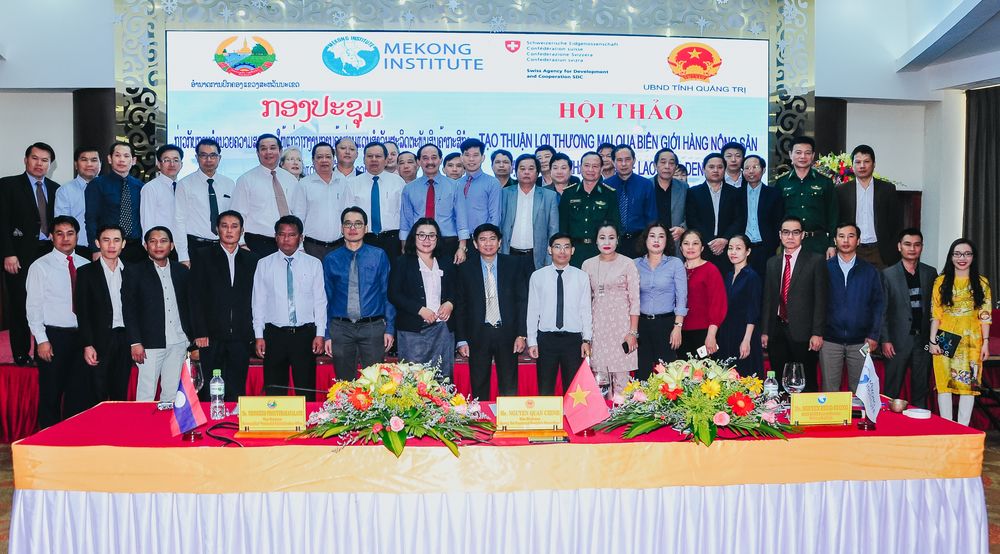The RLED-EWEC project organized back-to-back multi-stakeholder consultation workshops in Lao PDR, Vietnam and Mekong Institute, Thailand this month. The workshops aimed to share the initial results of the in-depth study on cross-border trade facilitation of agricultural products and inputs in twin provinces of the East-West Economic Corridor, namely Savannakhet (Lao PDR) and Quang Tri (Vietnam), Khammouane (Lao PDR) and Nakhon Phanom (Thailand), Savannakhet (Lao PDR) and Mukdahan (Thailand), and Kayin (Myanmar) and Tak (Thailand) provinces.
The first consultation workshop was held in Quang Tri province, Vietnam on March 13, 2018. Over 60 participants from provincial authorities and agencies and businesses of the twin provinces of Quang Tri and Savannakhet, joined the discussions. The second workshop was organized in Khammouane province, Lao PDR on March 15. In attendance were representatives from the government and private sector of Khammouane, Savannakhet, and Champasak provinces in Lao PDR and Nakhon Phanom and Mukdahan provinces in Thailand.
Inputs from the study were used by the participants to identify focused program interventions and lay down initial action plans for short, medium and long-term implementation. Following this, a debriefing workshop was organized on March 16 at the MI Headquarters in Khon Kaen, Thailand wherein study findings and action plans earlier identified by stakeholders were presented and further discussed with the management team.
At the debriefing workshop, MI Executive Director Dr. Watcharas Leelawath remarked that the work of the Project on cross-border trade facilitation complements the initiatives of other international organizations, such as the Asian Development Bank. RLED-EWEC’s study specifically seeks to push forward cross-border trade facilitation at the provincial level of the countries involved.
The study, which commenced in January this year, seeks to provide insights that will help inform and promote more efficient implementation of existing non-tariff measures at the local level along the selected border crossings with regards to agriculture commodities.








